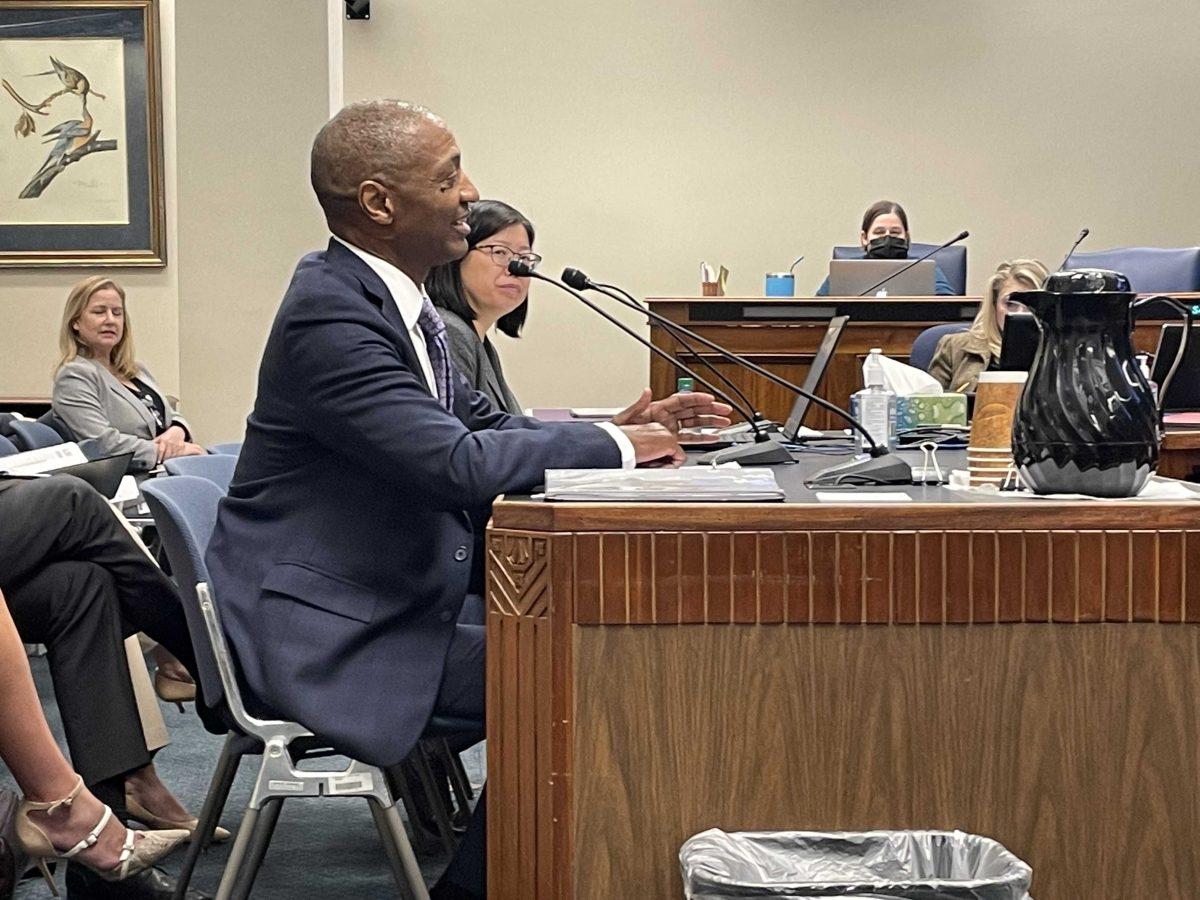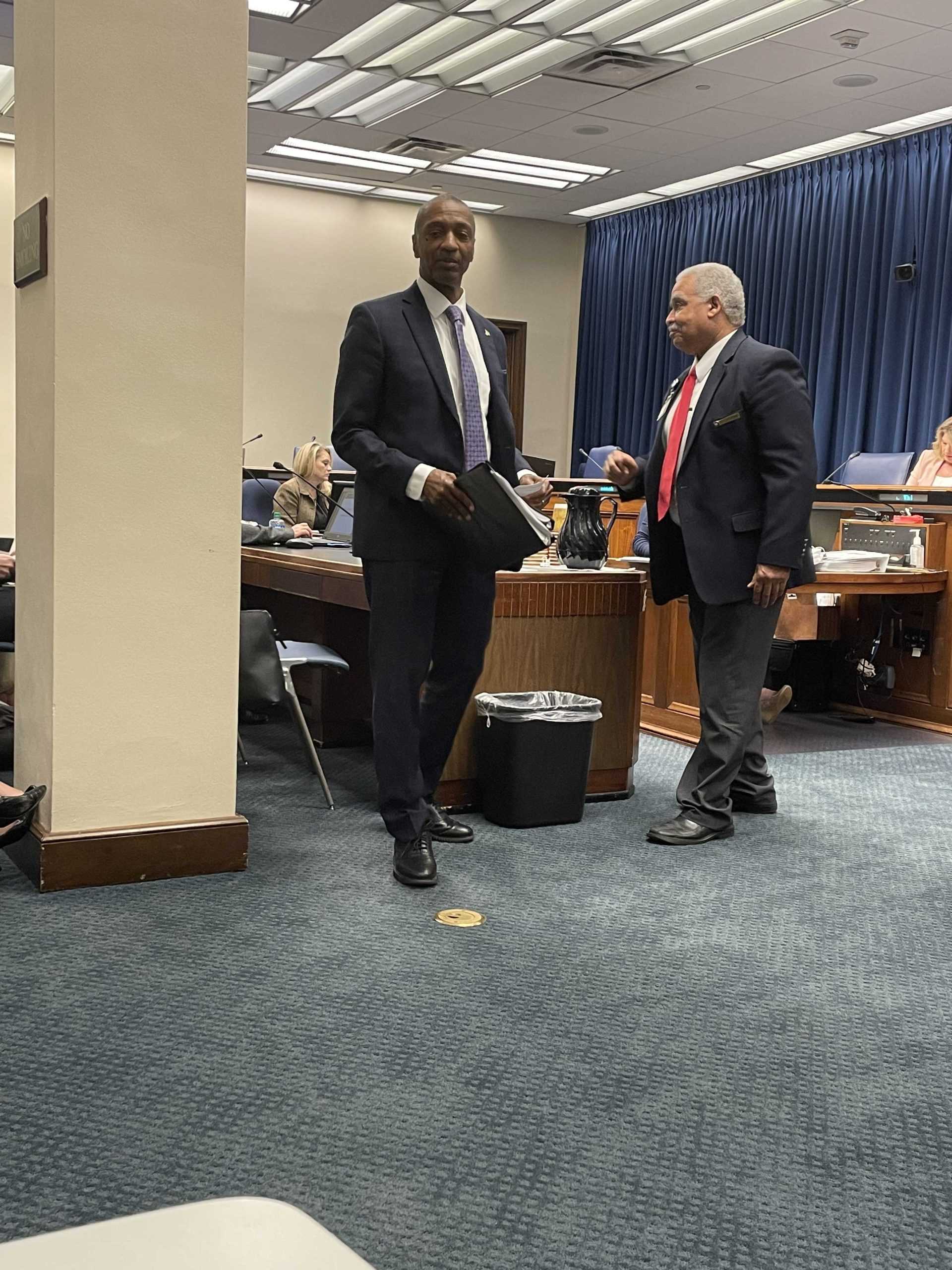Ahead of the regular legislative session, which begins March 14, LSU President William F. Tate is raising the alarm on Louisiana’s challenges and asking the state for extra cash to address them.
Tate announced the request during a speech to the Baton Rouge Press Club on Monday and reiterated it during testimony before the Louisiana Senate Finance Committee on Tuesday.
Tate argued that we are in the Sputnik moment of our generation and called on the legislation to give LSU an additional $105 million.
“It’s time for us not to be timid,” Tate said in a speech to the Baton Rouge Press Club, “but to be bold, to address the Sputnik moment of our time.”
A product of the Cold War era, Tate harked back to the passage of the National Defense Authorization Act of 1958, passed in the wake of the Soviet Union launching the Sputnik satellite. At the time, the USSR had lapped the United States technologically, raising fears about our readiness. The NDEA helped close the gap by funding STEM.
“We must take care of our agriculture,” Tate said. “We have to take care of human health in the biological environment. It’s important for us to protect our coasts. It’s vitally important that we defend ourselves in the form of cybersecurity. Ultimately, we’ve got to be able to move, generate energy. Energy is foundational.”
Tate’s proposal, sometimes called the Scholarship First Investment Package or the “Pentagon Plan,” includes funding in five key areas.
Agriculture
“You have to feed people with agriculture,” Tate said during the committee hearing. “And we’re deeply committed to enhancing our agricultural footprint in terms of deep, rich biotechnology being applied to helping the agriculture industry.”
The university is requesting $19.72 million for agricultural projects, including over $10 million for facilities, $4 million for staffing, $2 million for infectious disease research and $2.25 million for precision agriculture initiatives.
“We must seek to protect and optimize our agricultural resources,” Tate said. “Political unrest and population growth require innovation to address these increasing demands related to the goods and services in the agricultural value chain. LSU is foundationally grounded in this opportunity space.”
Biotechnology
“Every single person in every single parish deserves an opportunity to be able to just get in their car and go get the very best cancer care,” Tate said. “LSU’s responsibility as the flagship university with two medical centers, a veterinary school, a major emphasis in the biomedical sciences, to ensure that we seek National Cancer Institute designation.”
To achieve the goal of NCI designation, which is given to institutions that excel in research focusing on preventing, diagnosing and treating cancer, Tate requested $35.47 million from the legislature. That includes $25 million for recruiting and hiring faculty, $5 million for a clinical innovation and translational center and $2 million for artificial intelligence.
“Geography should not be the destiny of your life,” Tate said, adding that there is “nothing I will fight for harder” than NCI designation.
Coast
Tate said that his respect for Louisianaians grew tremendously one month into his tenure as LSU President, when he experienced his first hurricane.
“They are resilient, strong, powerful and ready to take on these challenges,” Tate said.
To address challenges presented by coastal erosion and sea level increases, Tate is requesting $9.45 million from the state. That figure includes $6.1 million for labs and equipment for new hires, $500,000 for a flood-prone housing resilience study and $450,000 for parish-based storm surge modeling.
According to the United States Geological Survey, Louisiana loses wetlands at a rate of 75 square kilometers per year. Wetlands act as a natural barrier against hurricanes, meaning that as they erode away, negative outcomes following hurricanes increase.
“Like our biomedical sciences, our coastal researchers are working to ensure geography is not destiny,” Tate said.
Defense
LSU was founded as a military school. Tate argues that the university should tap into that historical connection while keeping an eye on the future by innovating in the cybersecurity field.
“LSU is prepared to leverage our partnerships with the National Guard in the State, the State Police, the National Security Agency, including corporate partners to educate and train this generation’s cyber soldiers,” Tate said.
To prepare the next generation of cyber soldiers, Tate is asking for a $29.85 million investment. $22 million of that would fund an artificial intelligence supercomputer. Another $7.2 million would go toward acquiring cybersecurity talent for two campuses.
“My aim is that LSU would be the number one cyber place in the United States,” Tate said.
Energy
With the recent announcement of U.S. sanctions on Russian oil, Tate said now is the time to invest in energy innovations.
“We want to be optimal in how we invest in that as a research enterprise and linking that to the business community in such a way that we actually can sustain and take advantage of where we are in world markets,” Tate said.
The Library
After presenting his proposal, Tate went off-script and brought up the LSU library, relating it back to post-Sputnik investments in higher education, pointing out that the National Defense funding not only increased college enrollment and STEM funding, but also the expansion of libraries.
“I would be remiss to say, if I didn’t say, we definitely have a library problem,” Tate said. “It’s something that we need to take a close look at if we want to claim to be a flagship of any value in the way that I just described.”
After his testimony, Tate said that his comments about the library were not part of his original remarks, but he decided to add them in at the last minute.
The LSU library, a sore point on campus, is in need of almost $30 million in repairs and renovation. A new library is part of the LSU Master Plan and would require significant Capital Outlay funds from the state.
During Tate’s testimony, the committee was temporarily derailed by a concern from the committee chair, Sen. Mack “Bodi” White, a Baton Rouge Republican.
White asked to know how many of LSU’s international students are from Russia and China and how LSU was protecting its intellectual property.
“If we happen to be in dire conflict, and we could be in it, I think there’ll be a lot of pressure on those students to steal our intellectual property,” White said. “I’m asking you to guard for that. Let us know how many of those students we have on your campuses, even if it’s medical school.”
Tate said he could provide a report on international students, but said that there are “protocols in place.” Tate said that the committee was not the forum to discuss White’s concerns, but said he’d be “glad to chat.”
“I’m confident we can get to a place where we can continue our research and not worry about issues around illegal tech transfer,” Tate said.
LSU has not yet responded to a request for comment regarding the comments made about LSU’s international students.






